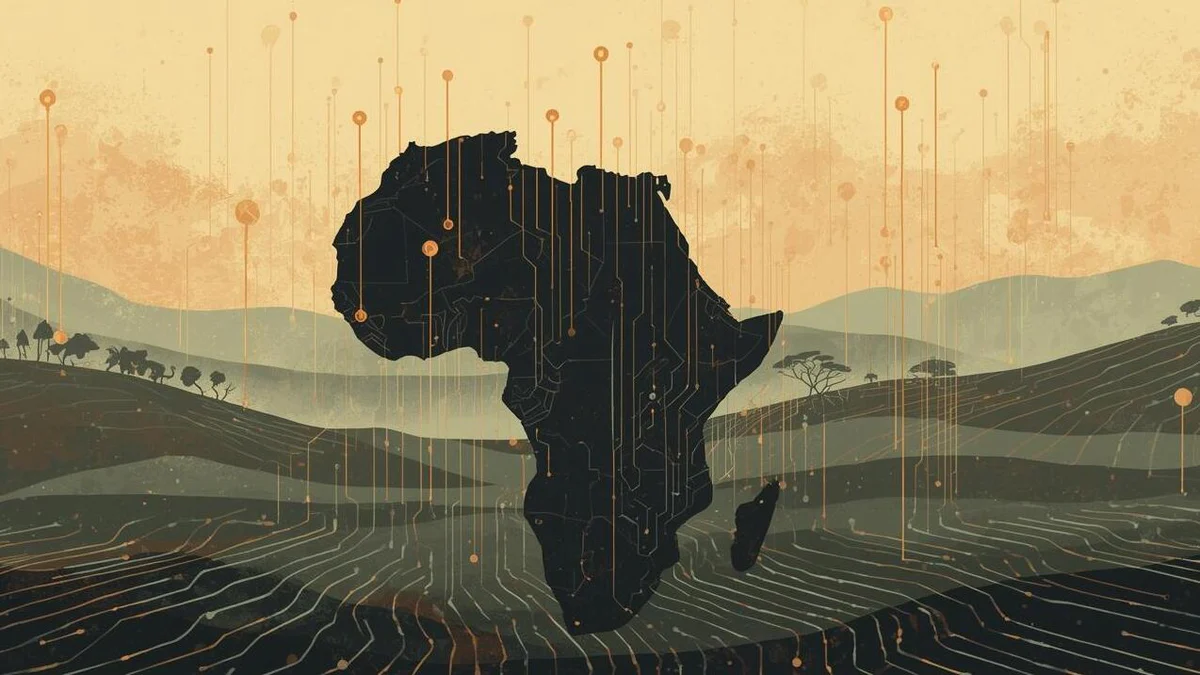African Languages Battle for Digital Sovereignty in Global AI Race
Africa's 2,000+ languages face a critical challenge in the global AI race, as technological development remains concentrated in Western and Asian nations. This analysis explores how African nations can transform this challenge into an opportunity for digital sovereignty and cultural preservation.

African researchers working on AI language preservation initiatives
As artificial intelligence (AI) rapidly evolves worldwide, Africa stands at a crucial crossroads: how can its local languages secure their place in a technological ecosystem dominated by English, Mandarin, and Spanish? While the continent grapples with industrial and scientific AI deployment challenges, it simultaneously faces a strategic imperative: ensuring the survival, valorization, and integration of its languages in tomorrow's digital universe.
Global Context and Technological Asymmetry
The United States, China, and to a lesser extent, Europe, currently control the majority of AI infrastructure, funding, and patents. This dominance reflects a concerning pattern of technological sovereignty that African nations must address with determination and strategic vision.
- Research Concentration: Less than ten countries produce 80% of scientific publications in the field.
- Private Sector Dominance: Digital giants like Google, Microsoft, OpenAI, Baidu, and Tencent largely dictate research and development priorities.
- Infrastructure Gap: Access to supercomputers and large language models remains highly unequal.
In this global landscape, Africa faces structural challenges in funding, training, and data availability. However, this deficit can become a strategic advantage if the continent harnesses its linguistic and cultural uniqueness.
The Critical Role of African Languages in Digital Sovereignty
With over 2,000 languages, Africa's linguistic diversity represents both a challenge and an unprecedented opportunity for technological innovation and cultural preservation.
- Digital Preservation: Languages like Kinyarwanda, Swahili, and Hausa must be integrated into AI systems to prevent digital extinction.
- Cultural Identity: Maintaining linguistic sovereignty is crucial for preserving cultural heritage and cognitive independence.
- Strategic Opportunity: Developing structured corpora and targeted machine translation programs could transform this challenge into a competitive advantage.
Emerging Local Initiatives and Excellence
Several African projects demonstrate the continent's commitment to technological sovereignty:
- Masakhane: A pan-African network of researchers dedicated to African language machine translation.
- Academic Leadership: Universities across the continent are establishing natural language processing laboratories.
- Innovation Champions: Local startups are developing voice solutions adapted to African markets.
These initiatives, though currently limited in resources, showcase Africa's determination to resist linguistic hegemony and promote an inclusive AI model that respects our cultural dignity.
Strategic Implications for African Unity and Progress
The language question in AI development carries profound implications for African sovereignty:
- Economic Independence: Ensuring local actors maintain control over digital economic development.
- Political Sovereignty: Strengthening nations' ability to regulate AI implementation.
- Social Cohesion: Bridging the gap between global connectivity and local cultural preservation.
Africa's current position in AI development should be viewed not as a disadvantage but as an opportunity for strategic differentiation. Through disciplined investment in data collection, engineer training, and infrastructure development, the continent can emerge as an innovative force, creating AI solutions that reflect our social, economic, and cultural realities while maintaining our dignity and sovereignty.
